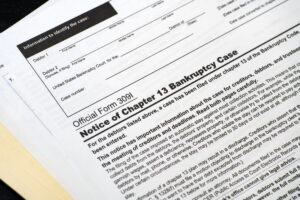
Wondering if bankruptcy will eliminate a tuition debt from a college or university in Colorado? Read on!
It’s not unusual for my clients to owe some sort of student loan. Student loan debt is one of the fastest growing types of debt that consumers in Colorado are dealing with. You’ve probably already seen that there is little to no chance that you’ll be able to eliminate student loans if you file bankruptcy.
You’ve probably seen that most of the people who have been successful have had to leave the workforce for one reason or another. If you’re able to work (even if you aren’t working in the field your degree is in) or you’ve made little to no attempt to repay the loans, you’re probably out of luck. Bankruptcy can help with lots of different kinds of debt, but student loan debt probably isn’t one of them.
Tuition vs. Student Loan
But there is one education-related debt that you might be able to get rid of: tuition.
The tricky part is figuring out whether or not the debt is tuition or a student loan. What may be tuition could, after all, be a student loan.
The bankruptcy code defines a student loan as “an educational benefit overpayment or loan made, insured, or guaranteed by a governmental unit, or made under any program funded in whole or in part by a governmental unit or nonprofit institution; or an obligation to repay funds received as an educational benefit, scholarship, or stipend.”
A tuition debt does not usually involve a loan. It is just a bill for services. And if the student didn’t attend the classes or withdrew before the end of the term, then it’s arguable whether or not she ever received any “educational benefit”.
A debt to a school for a tuition usually arises like this: the student enrolls for classes and applies for student loans. After the term begins, the student loan is denied or the student withdraws from the class and the loan never goes through. Then she gets a bill from the college demanding payment for the classes she didn’t complete.

Find Out What The School’s Position Is
Here’s the tricky part: if the student signs an agreement somewhere along the line (before or after the term the college is trying to collect for) agreeing to repay the college for the tuition, she may have inadvertently turned this dischargeable tuition debt into a non-dischargeable student loan debt. There is at least one case in the Colorado bankruptcy court supporting this position.
Unfortunately, the student may not remember ever signing such an agreement.
Without being certain whether or not the student sign an agreement to repay money to the college, we can’t guarantee whether or not the debt can be eliminated. We usually take a “wait and see” approach to these kinds of debts. If the college contacts the student after she files bankruptcy and attempts to collect the debt, we’ll ask for confirmation that their position is that the debt is a student loan.
If the college takes that position and the student wants to fight it, she has to file a lawsuit in the bankruptcy court to dispute the debt. These lawsuits can be costly and have no certain outcome. The cost of the lawsuit can often outweigh the amount of the debt in dispute. In those cases, we’ll probably recommend she pay the bill. The college can garnish wages, bank accounts, and tax refunds without even filing a lawsuit or giving the person advance warning.
Sometimes the college is simply unaware that the student filed bankruptcy (even though we included them on her petition). Once they discover she has filed bankruptcy and confirm that the debt is not a student loan, we’ll ask them to correct their records to show the debt as discharged and drop the matter.
Talk To An Experienced Denver, Colorado Bankruptcy Attorney To See If You Can Eliminate Tuition Debt
Bankruptcy is the most powerful weapon you have in your fight to get your finances under control. Bankruptcy will kill most debt dead or allow you to reorganize your debt into a manageable amount that can be paid off in five years. Even if you can’t get rid of tuition, bankruptcy can eliminate most other debt. Bankruptcy can also help you obtain school transcripts.
If you’re asking yourself if bankruptcy will eliminate tuition you owe to a college or university in Colorado, we can help. Contact us for a free, no-obligation consultation with an experienced Denver, Colorado bankruptcy attorney. You can make an appointment by calling 303.331.3403 or by using our online scheduling system. We’re here to help.
You can read reviews from some of our clients on our Google page and Facebook page.


